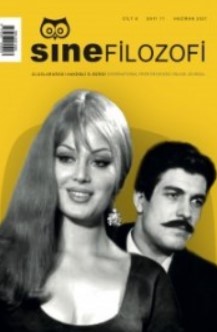Modern Devletlerin Queer Sorunsalı: Lefebvre’nin Gündelik Hayatın Eleştirisi Kuramı Bağlamında ‘Ve Sonra Dans Ettik’ Filminin Analizi
Queer Issues Of Modern States: Analysis Of Lefebvre’s Movie “And Then We Danced” In The Context Of The Critical Theory Of Everyday Life
Author(s): Umur Suyadal ErsözSubject(s): Gender Studies, Film / Cinema / Cinematography, Sociology of Art, Identity of Collectives
Published by: Serdar Öztürk
Keywords: And Then We Danced (Movie title); Critique of Everyday Life (Henri Lefebvre); Sexual Identity; Modernism; Queer Theory;
Summary/Abstract: Directed by Levan Akin, the 2019 film And Then We Danced (And Then We Danced) focuses on the conflict between modernism and traditionalism in Georgia’s nation-state formation process through the liberation problem of queer people. The scope of the film consists of three problems: The contradictions faced by the nation-states in the process of modernization; the effect of places and traditions on the construction of sexual identity; and the discovery of sexual orientation and revolt against social norms over lynch culture as a result of the social view towards LGBT individuals. It is seen that, in the film, in everyday life relations, traditionality is tried to be preserved despite modernism, sexism is reproduced, and sexual orientation is tried to be shaped. The film reveals the establishment of a surveillance society by drawing attention to the relations of power both on individuals’ sexual identities and at many parts of everyday life. In this context, the film overlaps with Henri Lefebvre’s “critique of everyday life” and Michel Foucault’s approach to “modern forms of power”. In addition, the domination of the nationstates over the sexual identities of individuals is evaluated on the basis of similar points with social gender and queer theoretical approaches. Therefore, these contexts constitute the theoretical framework of the film. Everyday life is affected by developments such as globalization, modernism, and technology. When these developments are taken into consideration, the transformative and actually ideological effect of the everyday life of individuals, which is seen as ordinary, simple, and plain; is handled with the concept of alienation which is the starting point of Lefebvre’s work and the film indicators.
Journal: SineFilozofi
- Issue Year: 6/2021
- Issue No: 11
- Page Range: 885-907
- Page Count: 23
- Language: Turkish

